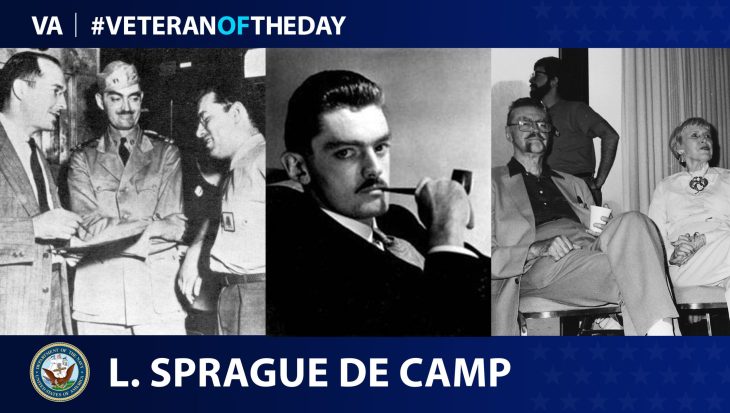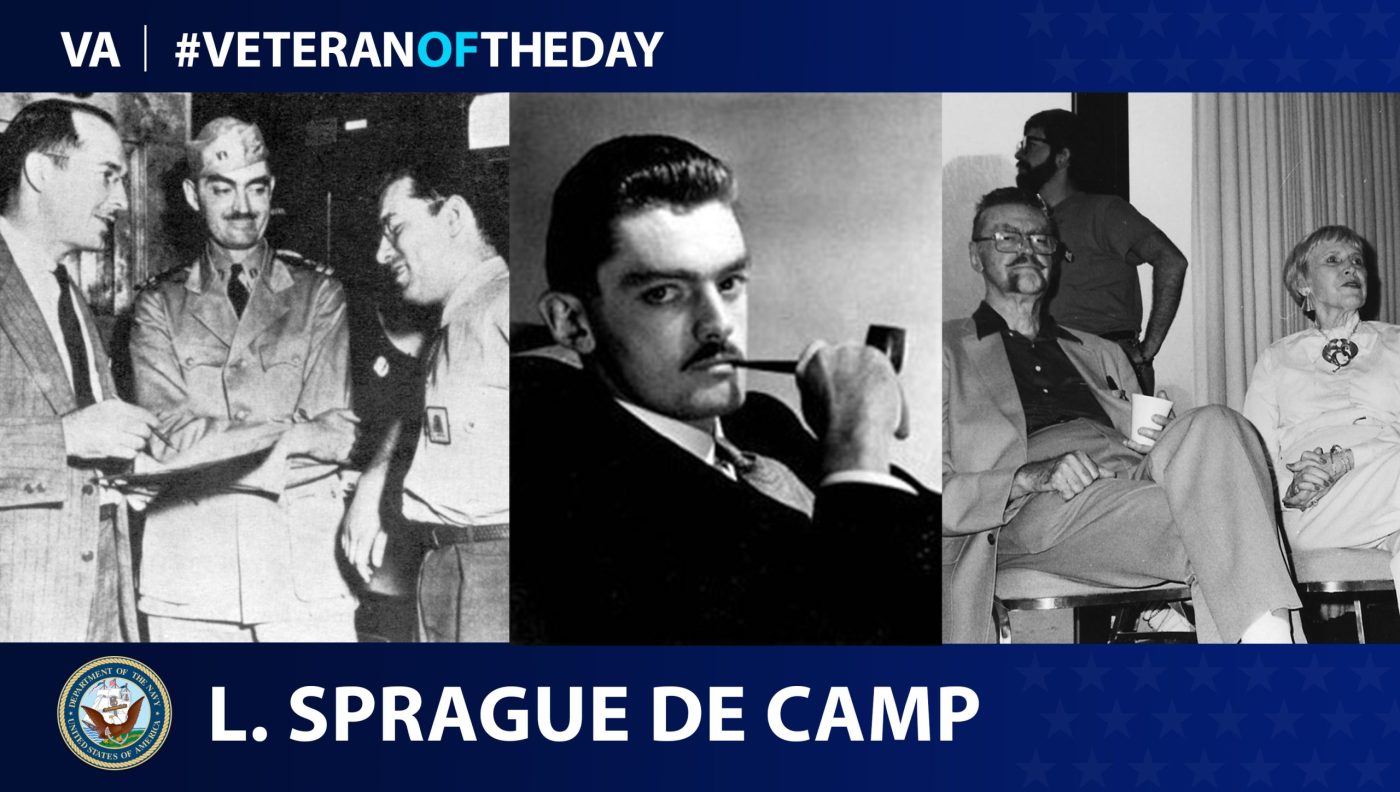December 11, 2022: L. Sprague de Camp

Lyon Sprague de Camp was born in New York City in November 1907. He moved to California in 1926 to attend the California Institute of Technology, earning a bachelor’s degree in aeronautical engineering in 1930, followed by a master’s degree in engineering from the Stevens Institute of Technology in 1933. While he was an engineer by training, de Camp also worked as an educator, patent expert and public relations writer, among other jobs.
De Camp’s first published story, “The Isolinguals,” which appeared in the pulp magazine “Astounding Science Fiction” (ASF) in 1937. During the late 1930s and early 1940s, he wrote many stories for ASF and its sister publication, the fantasy-themed magazine “Unknown.” Throughout his career, he frequently collaborated with other authors, including his wife, Catherine.
During World War II, de Camp was recruited to work at the Naval Air Experimental Station in Philadelphia on the recommendation of author Robert Heinlein, who, working as a civilian engineer for the military, suggested that the Navy hire his fellow science fiction writers de Camp and Isaac Asimov for their technical expertise. De Camp accepted the offer and applied for a commission in the Navy Reserve. He attended training school at Dartmouth College in New Hampshire in July 1942 and was commissioned as a lieutenant. De Camp, Heinlein and Asimov all worked together in Philadelphia, designing and testing naval aircraft. De Camp left the Navy with the rank of lieutenant commander.
After the war, de Camp spent the next half-century as a full-time writer. Over the course of his career, he penned over 100 books, including novels, works of nonfiction, collections of poetry and biographies of other authors, as well as hundreds of short stories. Although he had a reputation as a humorous writer who wanted to entertain his readers, he believed a story could not stand on humor alone.
“The mere fact that a narrative depends… upon humor doesn’t excuse the author from writing a good story,” he wrote in a 1947 essay. “The yarn still needs structure, characterization, movement, narrative hook, build-up, climax, and all the rest.”
In his later years, de Camp wrote more fantasy than science fiction, completing and editing several “Conan the Barbarian” stories originally written by Robert E. Howard, who died in 1936. The Science Fiction Writers of America named him a “Grand Master” in 1979, and he received a World Fantasy Award for lifetime achievement in 1984. He also received a Hugo Award, the highest prize in the field of science fiction, for his 1997 autobiography, “Time and Chance.”
“I esteem my readers, since they enable me to live without working,” de Camp wrote. “I merely do what I like to do—write—and people are rash enough to pay me for doing it.”
De Camp died on Nov. 6, 2000, at the age of 92.
We honor his service.
Nominate a Veteran
Do you want to light up the face of a special Veteran? Have you been wondering how to tell your Veteran they are special to you? VA’s “Honoring Veterans” social media spotlight is an opportunity to highlight your Veteran and his/her service.
It’s easy to nominate a Veteran. Visit our blog post about nominating to learn how to create the best submission
Writer: Stephen Hill
Editors: Alexander Reza, Merrit Pope
Researcher: Giacomo Ferrari
Graphic Designer: Brittany Gorski
Topics in this story
More Stories
For National Parks Week, this week's #HonoringVeterans spotlight honors the service of Army Veteran and NPS employee Charles Barr.
This week’s Honoring Veterans Spotlight honors the service of Army Veteran Albert Tristan, who served during the Vietnam War.
This week’s Honoring Veterans Spotlight honors the service of Marine Corps Veteran Rodney Sickmann, who served in Iran.





